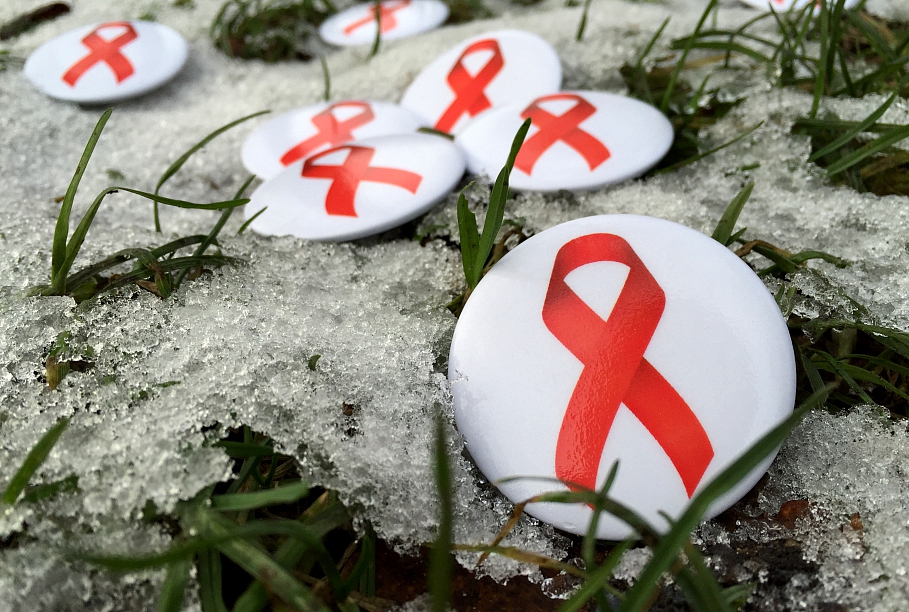According to statistics, about 5,500 HIV-infected people are residing in Latvia, but the real number might be considerably higher.
One to two people learn each day that they're infected with HIV - there are about 400 new cases discovered each year. However the number has been increasing for the last few years.
Meanwhile Estonia, which has more discovered cases per 100,000 inhabitants, has been reducing the spread of HIV throughout the years. Next year Latvia might surpass Estonia as the place with the most HIV infections per 100,000 people.
"For Estonians the level of new infections has been going down, but it has been going up for us [..].
Estonia has 20 cases per 100,000 inhabitants. We have 19.8,"
said Anda Ķīvīte, an associate professor at the Riga Stradins University.
HIV infection levels peaked in 2001 when the virus was discovered in three people each day. Prevention measures were introduced quickly and the number of new cases started decreasing in the next years.
State has no plan for treating HIV
The fact that Latvia has no policy planning document regarding HIV prevention and treatment poses as big problem.
Inga Upmace, head of the Baltic HIV Association said that the virus has been named the fifth priority in the healthcare guidelines issued in 2014, which is the only document that mentions HIV.
"These guidelines say that the Health Ministry is working on a new plan for limiting the spread of HIV, hepatitis, and sexually transmitted diseases - which has not been made until now, and there's a question - why?" said Upmace.
The previous five-year plan was operating until 2013 and stipulated target groups, the responsibilities of the state and non-government sector, as well as set targets that should be met in restricting the infection.
"If we don't have a state-level plan, I think that this planning is slowing down our strategies, prevention and treatment. [..] New ministers come, everything is changing all the time, but the heredity is very poorly preserved," said Upmace.
A plan is in the works
While Health Ministry representative Jana Feldmane says that a plan is in the works and specialists' opinions are being collected.
"It is not just for limiting the spread of HIV but all sexually transmitted diseases. It's for limiting the spread of HIV, hepatitis C and sexually transmitted diseases," said Feldmane.
"We have prepared an overview with the needed measures, the required funding, along with a justification of these measures," she said.
The policy planning document could be ready only by mid-2017.
The ministry said that no plan is in place as there hasn't been any extra funding for a long period of time.





























